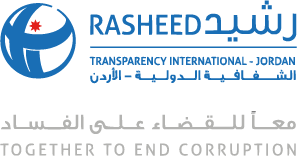The Monitoring Land Governance and Land Tenure Security
The Arab region is currently facing profound change and challenges, and land tenure security, land governance and, particularly, land governance monitoring, are illustrative of such issues. Noteworthy is the launch of the Arab Land Initiative, which was established in 2016, but concretely very little has been done in the framework of monitoring. Overall, it results in a lack of information and data around land and land governance, subsequently resulting in issues with regards to transparency, accountability and evidence-based decision-making around land.
Based on global dynamics and initiatives on monitoring land governance, it is opportune and necessary to develop these capacities in the region. Taking advantage of global dynamics and initiatives regarding land governance monitoring, it is presently opportune and necessary to develop these capacities in the region. This will need:
1) First and foremost, understanding the land governance monitoring itself (it’s legitimacy and relevance as well as how and what to monitor);
2) Capacity development in order to create the expertise for effective land monitoring implementation;
3) Comprehensive package to be deployed at national level, in order to respond to and cover possible national specificities, policy priorities and processes, so the different frameworks are complementary and countries (or the different stakeholders within these countries) can adapt these monitoring tools in response to their specificities and priorities.
The Agreement of Cooperation with UN-Habitat aims at building the capacity of Rasheed TI-JO in land sector and at contributing to better monitoring land governance and land tenure security in the MENA region. This area of work is led by Rasheed TI-JO in coordination with UN-Habitat and GLTN and is composed of two main activities: two training events on monitoring land governance and Expert Group Meeting (EGM) on the topic of monitoring land governance and land tenure security. These upcoming events will mark an important milestone in the roadmap towards developing and enhancing monitoring of land governance and tenure security including improving the quality of land data.
Under this project, Rasheed (TI-JO) aims to focus on activities around monitoring land governance in the Arab states, to raise awareness on the importance of land governance and monitoring it as well as on information sharing, generation of land data, and subsequently resulting issues of transparency, accountability and evidence-based decision-making around land.
These highly interactive events will provide the grounds for information exchange, capacity building and working sessions on advancing and improving the already existing methodologies for monitoring land governance related issues as well as its indicators, and integrating them into the national and regional contexts by developing a unified package of tools and recommendations. This will also provide an opportunity to jointly develop a strategy for implementation and an action plan for land monitoring in the Arab region.
It will allow looking at the broader context of land monitoring and land data generation initiatives, which exist globally and are being implemented to a certain extent in the Arab region (like, GLII, MELA, PRIndex, LANDex, etc.). It will create the opportunity for countries to understand the challenges, complexities and options for monitoring land governance, report on SDG indicators, develop their own broader monitoring frameworks building on the work done through different initiatives, and ensure that a solid monitoring structure is put in place for effective decision making.




